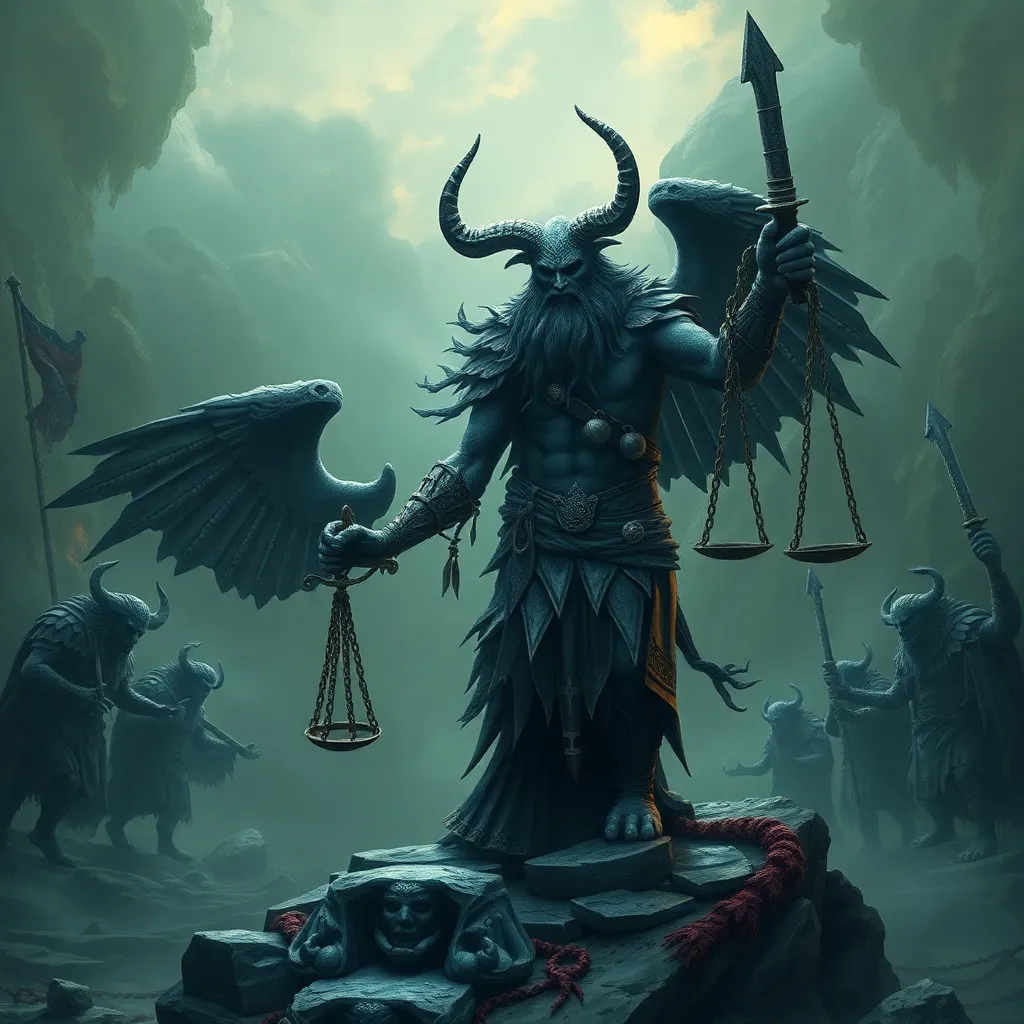The Orcish View of Justice: Exploring the Concepts of Right & Wrong in Orcish Societies
I. Introduction
Orcish culture holds a significant place in the realm of fantasy lore, often depicted as fierce warriors with a distinct set of morals and values. Understanding the concept of justice within Orcish societies provides a deeper insight into their intricate social fabric and the principles that govern their behavior. Justice in Orcish communities is not merely a matter of law; it embodies their strengths, weaknesses, and the very essence of their identity.
This article aims to explore the Orcish view of justice, examining its historical context, fundamental beliefs, legal systems, and the various influences that have shaped their understanding of right and wrong. By delving into these aspects, we can appreciate the complexity of Orcish ethics and their relevance in both historical and contemporary narratives.
II. Historical Context of Orcish Societies
To understand the Orcish perspective on justice, one must first appreciate the evolution of their societies through myth and legend. Historically, Orcs have been portrayed as brutish creatures often at odds with other races, but this oversimplification overlooks the nuanced development of their cultures.
- Evolution of Orcish Societies: Orcish societies have transformed from primitive clans to complex tribal structures, influenced by their interactions with other races and the environment.
- Key Historical Events: Significant events, such as wars with humans and alliances with other races, have played a pivotal role in shaping their concepts of justice and community.
When compared to other fantasy races, Orcish societies often emphasize strength and communal ties over individual rights, contrasting with the more law-driven societies of elves or humans. This difference is crucial in understanding their unique approach to justice.
III. Fundamental Beliefs and Values in Orcish Culture
At the heart of Orcish ethics lie fundamental beliefs that dictate their views on right and wrong.
A. The Role of Strength and Honor
Strength and honor are paramount in Orcish culture. They view physical and moral strength as the foundation of justice, where the strong protect the weak and uphold societal values.
B. Community versus Individualism
Orcish ethics lean heavily towards communal well-being. Decisions and actions are often made with the community’s interest in mind, contrasting sharply with the individualistic approaches seen in many human societies.
C. Spiritual Beliefs
Spirituality plays a crucial role in shaping Orcish justice. Many Orcs believe in ancestral spirits and deities that guide their sense of right and wrong, and rituals often accompany important decisions.
IV. The Orcish Legal System
The Orcish legal system is informal yet deeply rooted in tradition. It operates through councils of elders or chieftains who adjudicate disputes and uphold community standards.
A. Structure and Function
Orcish councils consist of respected leaders who embody the values of strength and honor. Their decisions are often based on consensus, reflecting the importance of community input.
B. Conflict Resolution Practices
Common practices in conflict resolution include:
- Public discussions where both parties present their cases.
- Trial by combat as a means to settle disputes, where the victor’s strength is seen as a reflection of moral rightness.
C. Role of Rituals and Traditions
Rituals play a significant part in legal proceedings, often invoking ancestral spirits for guidance and blessing. These rituals reinforce the community’s shared values and the gravity of the decisions made.
V. Punishments and Restorative Justice
In Orcish societies, the approach to punishment is often tied to the concept of restorative justice, aiming to restore harmony within the community rather than simply penalizing the offender.
A. Types of Punishments
Orcish punishments can range from:
- Public shaming for lesser offenses, emphasizing community accountability.
- Exile for severe breaches of trust, which is seen as a significant loss of honor.
B. Restitution and Reconciliation
The Orcish concept of justice often includes restitution, where offenders are required to make amends to the victims or the community. This process is vital for healing and reconciliation.
C. Notable Legal Cases
Case studies of notable Orcish legal cases reveal the dynamics of their justice system, highlighting how communal values and strength play a role in the outcomes.
VI. The Influence of External Factors on Orcish Justice
Orcish justice systems are not developed in isolation; they are influenced by interactions with other races and the evolving landscapes of conflict and peace.
A. Interaction with Other Races
Engagements with humans, elves, and dwarves have led to a cross-pollination of ideas about justice, sometimes challenging traditional Orcish norms.
B. Impact of War and Conflict
War has a profound impact on Orcish justice, often leading to stricter codes of conduct and a greater emphasis on loyalty and honor during times of strife.
C. Adaptation to Societal Norms
As Orcish societies evolve, there is an ongoing adaptation to changing societal norms and pressures, reflecting a willingness to grow while retaining core beliefs.
VII. Modern Interpretations and Misconceptions
In contemporary media, Orcish justice is often misrepresented, leading to stereotypes that fail to capture the depth of their moral frameworks.
A. Examination in Contemporary Media
Films, games, and literature frequently depict Orcs as one-dimensional villains, overlooking their rich cultural heritage and complex ethical beliefs.
B. Debunking Stereotypes
Common misconceptions include the idea that Orcs lack morality or honor. In reality, their sense of justice is deeply intertwined with their cultural values.
C. Insights from Popular Culture
Recent portrayals in popular culture have begun to provide a more nuanced view of Orcish perspectives, showcasing their struggles and values in a more relatable light.
VIII. Conclusion
In summary, the Orcish view of justice is multifaceted, deeply rooted in their historical context, communal values, and cultural beliefs. Understanding these perspectives is essential not only for appreciating Orcish lore but also for recognizing the broader implications of justice in diverse societies.
The relevance of understanding Orcish ethics extends beyond fantasy narratives; it invites us to reflect on our own societal norms and the complexities of morality. As Orcish societies continue to evolve, their concepts of justice will undoubtedly adapt, embodying the strength and resilience that characterize their enduring spirit.



